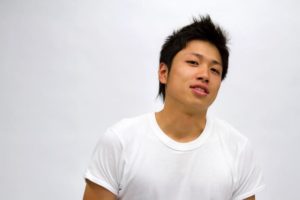Can You Explain What Your “tansho” and “chōsho” are?
Everyone has both “短所(tansho)” and “長所(chōsho)“, however, what is the “短所” and “長所“? You’d use it in introducing yourself. Let me introduce what “短所” and “長所” are today!
短所 (tansho)
Weaknesses / 缺点 / 단점 / Nhược điểm
“短所(tansho)” means “Weaknesses” and which has been used as the meaning of “a weak point; fault or defect, as in one’s character” that all of the people have. An antonym of “短所” is “長所” which all of the people also have. When talking about the character, that would be used.
\ Learn Japanese with a personal native teacher!/
Sample
あなたの短所は何ですか? (What are your weaknesses?) (你的缺点是什么?) (당신의 단점은 무엇입니까?) (Điểm yếu của bạn là gì?) (anata no tansho wa nan desu ka?)


僕の短所は仕事に一生懸命になりすぎるところです。 (My weakness is I sometimes work too hard.) (我的缺点是工作太拼命了。) (내 단점은 일을 지나치게 열심히 하는 것 입니다.) (Điểm yếu của tôi là quá mức cố gắng trong công việc.) (boku no tansho wa shigoto ni isshōkenmei ni nari sugiru tokoro desu.)


彼氏はやさしいから、自分の意見を言えないことが短所なの。 (My boyfriend is so kind that he can’t express himself which is his weaknesses.) (我的男朋友很温柔,所以无法表达自己的观点是他的缺点。) (남자친구는 너무 친절해서, 자신의 의견을 말하지 못하는 게 단점이야.) (Bạn trai của tớ quá hiền lành nên có điểm yếu là không thể bày tỏ ý kiến của bản thân.) (kareshi wa yasashī kara, jibun no iken wo ienai koto ga tansho nano.)


誰にでも短所ってあると思うよ。 (I think everyone has a weaknesses.) (我认为每个人都有缺点的。) (누구에게나 단점은 있다고 생각해.) (Tớ nghĩ là bất kỳ ai cũng có điểm yếu cả.) (dare ni demo tansho tte aru to omou yo.)
長所 (chōsho)
Strength / 优点 / 장점 / Ưu điểm
“長所(chōsho)” means “Strength” and which has been used as the meaning of “a strong point; a good characteristic” that all of the people have. An antonym of “長所” is “短所” which all of the people also have. When talking about the character, that would be used.
Sample


たつやの長所は何? (What are your strong points?) (达也的优势是什么?) (타츠야의 장점은 뭐야?) (Ưu điểm của Tatsuya là gì thế?) (tatsuya no chōsho wa nani?)


僕の長所は正直なことです。 (My strong point in my honesty.) (我的优点是为人正直。)(제 장점은 정직한 것입니다.) (Ưu điểm của tôi là thẳng thắn.) (boku no chōsho wa shōjiki na koto desu.)


彼氏の長所は誠実なところです。 (My boyfriend’s strength is sincere.) (我男朋友的优点是真诚。) (남자친구의 장점은 성실한 것 입니다.) (Ưu điểm của bạn trai tôi là chung thủy.) (kareshi no chōsho wa seijitsu na tokoro desu.)


ゆかの長所は礼儀正しいことだね。 (You’re strength is polite.) (优香的优点是很有礼貌。) (유카의 장점은 예의 바르다는 점이야.) (Ưu điểm của Yuka là rất lịch sự.) (yuka no chōsho wa reigi tadashī koto dane.)
\ Learn more! /









Comments